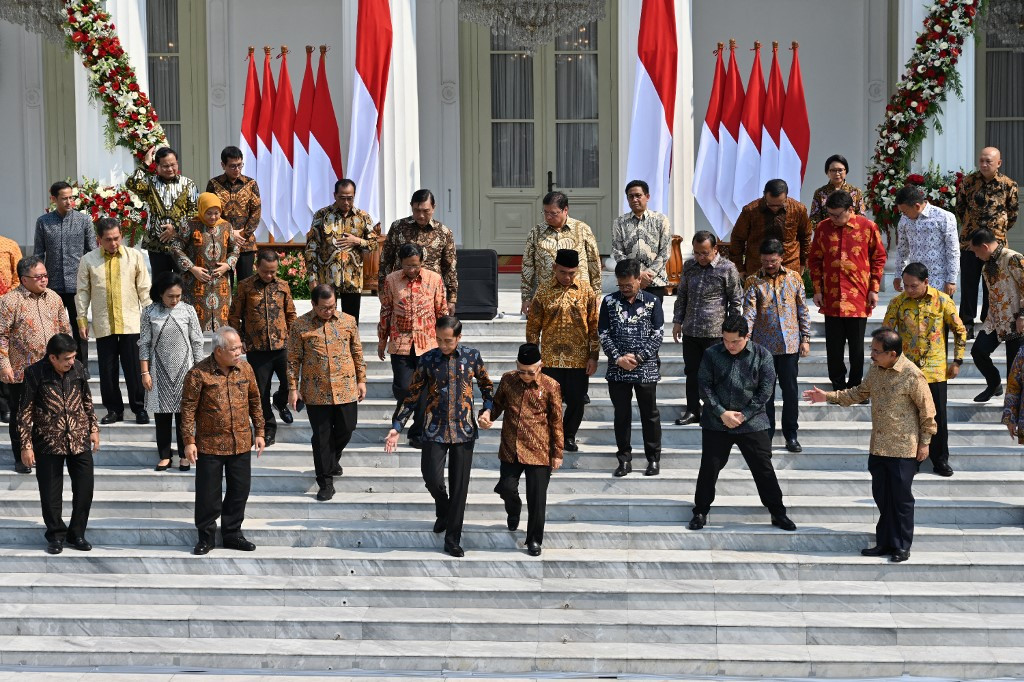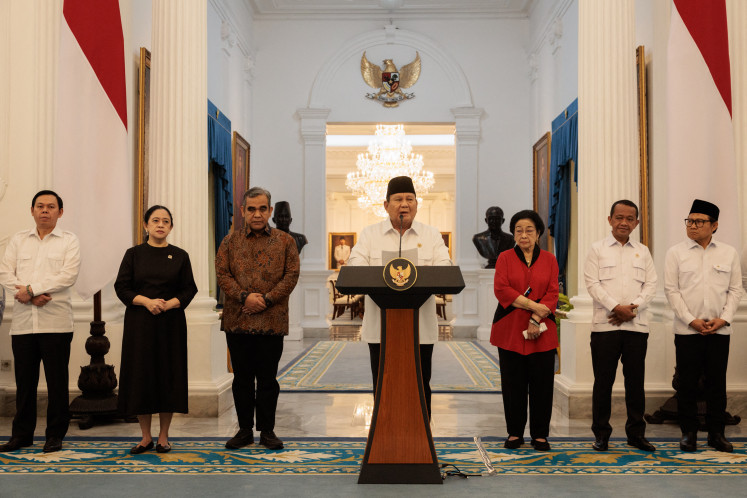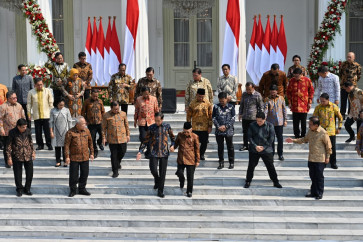Popular Reads
Top Results
Can't find what you're looking for?
View all search resultsPopular Reads
Top Results
Can't find what you're looking for?
View all search resultsIs bigger really better? Rethinking cabinet expansion plan
The idea to expand the number of ministries may seem like a good idea at first glace, but history and lessons from other countries indicate that the size of a cabinet has nothing to do with a government's effectiveness.
Change text size
Gift Premium Articles
to Anyone
I
n a world where the mantra "bigger is better" often guides policy decisions, Indonesia stands at a crossroads with a proposal to expand its cabinet. This move, intended to streamline governance and improve stability, prompts a crucial question: Does increasing the size of government actually enhance its effectiveness?
As president-elect Prabowo Subianto looks to build a broad coalition to stabilize his incoming government, the proposal to increase the number of ministries is sparking considerable debate.
Returning from recess on Tuesday, House of Representatives lawmakers have set their sights on revising the 2008 Ministries Law, which limits the number of cabinet ministers to 34. House Deputy Speaker Sufmi Dasco Ahmad, who is also an executive at Prabowo’s Gerindra Party, said the revision was not intended to allow more appointments in Prabowo’s cabinet, but to optimize the performance of the next administration.
While the goal is to enhance governance, this approach has significant downsides that we cannot ignore. The lessons from other nations as to costs, inefficiencies and risk of corruption suggest this might not be the best step forward.
The financial implications are the most immediate concern. Creating new ministries means heavy investment in new buildings, more human and various resources. As we continue to navigate the economic impacts of the COVID-19 pandemic, it would be more prudent to allocate these funds to critical services such as health, education and infrastructure.
Additionally, the president-elect has committed to introducing a free lunch program for 80 million students, which will further stretch the budget. This financial burden, especially during a period of hoped-for economic recovery, is highly questionable.
Considering the financial strain is particularly relevant when we recall the challenges encountered a decade ago during President Joko “Jokowi” Widodo's major government reorganization, which demonstrated that creating new ministries or consolidating existing ones can lead to significant controversies and complexities, highlighting the administrative and financial implications that such restructuring can entail.



















